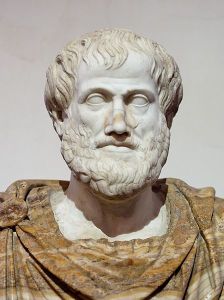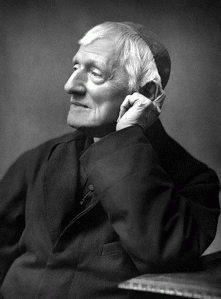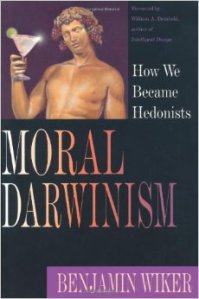
“[The distorted ideas of modernity] see man as his own god, and history either as man’s work or as a naturalism.” — p. 25, Bible as history, George Buttrick
Today I want to talk about historicism, with lots of help from the respected confessional Lutheran apologist and historian Dr. Martin Noland.
Over my last Christmas vacation, I tackled his PhD. Dissertation, Harnack’s historicism: the genesis, development, and institutionalization of historicism and its expression in the thought of Adolf Von Harnack (1996).** Right away I was hooked and intrigued with Dr. Noland’s ambitious work, because we share very common interests and he seemed to “fill in” many of the gaps that have existed in my own knowledge of topics such as these (see my own series on this topic “What Athens needs from Jerusalem”).
What follows is my own highlighting of key elements of Dr. Noland’s dissertation, along with some comments that aim to build on his very insightful observations and synthesis.
Be warned – what follows is admittedly some very dense and heady stuff – this can’t be avoided when talking about historicism! – but I am trying to make it understandable as best as I can, choosing the most helpful quotes and the like. At 360 pages, the dissertation covers a lot, and in order to not simplify the complexity too much, I have chosen to error on the side of going a bit too long myself. Here is a particularly helpful summation of Noland’s work by the man himself:
“In summary, historicism was both a worldview and a method. As a worldview, it was identified with anti-naturalist and post-speculative realist perspectives, emphasizing the themes of the malleability of human nature and individuality. As a method, it operated with the principles of criticism, analogy, correlation, development, and the historical idea.” (p. 83)
The “post-speculative realist perspective” talked about in that quote is a term that emphasizes a distinction between men like Hegel and the others who followed him that are usually considered to be historicists – Hegel was far more optimistic about man’s ability to speculate accurately about the future, given what he considered the discernible workings of the Spirit in the world. In his dissertation, Noland points out the Christian influences (particularly a strong notion of “divine providence”) on some of the first systematic thinkers in historicism – men who responded to and countered Hegel – particularly Ranke and Humboldt, and also says that the highly influential early 20th c. theologian Adolf Von Harnack was “closer to the early historicists… than Troeltsch may have realized” (p. 202, hence Von Harnack’s picture being in part I).
Who is Troeltsch? Pictured above, he is most well-known as a Christian historian of culture and religion, and the author of the famed work Die soziallehren der chrsitlichen Kirchen und Gruppen, which Noland says can be seen not primarily as a theological treatise, but “the epitome of historicist analysis of Western society at the highest level” (p. 213). So it is not surprising that Noland cites Troeltsch quite a bit in his dissertation, for the most part seeming to accept his analysis and synthesis as helpful (Noland’s own view is that Troeltsch himself should be classified as a historicist – he also told me that his views were affected by World War One and that he thinks Troeltsch can be considered a transition figure***). Again, what follows will summarize some key bits of Noland’s overall analysis.

First however, I will share some of my own comments – to set the wider context a bit more. With the advent of Descartes in the mid- 17th c., there is a fundamental shift in philosophy in the Western world – a shift that the great Lutheran theologian John Gerhard perhaps just caught the tail end of. Nevertheless – and I admit that I could be wrong about this – it seems to me that with Descartes we have an attempt to partially salvage Aristotle’s focus on certainties external to, or outside of, us – namely, their discernible essences – from the onslaught of Francis Bacon’s program (exemplified by a title riffing on Aristotle: the New Organon****), which in sum emphasized the importance of “what works”- technique (with extreme forms of nominalism being the inevitable result of this) via experimentation, systematic observation, and probabilities.
Rene “I think therefore I am” Descartes was not only a towering philosopher but also a mathematician and practicing scientist. His ideas, scientific and philosophical (in these days, these were seen as going together, science was philosophy) had an immediate influence. It would be then be other action-men like Blaise Pascal who would soon afterwards seem to further vindicate crucial aspects of both Bacon and Descartes’ approaches, what with his many experimental science and mathematical-invention successes. Newton would follow soon thereafter, lending even more credibility – immense credibility – to Bacon and Descartes. However, even in these days there were men who saw what was being missed in these approaches and endeavored to put forth their own viewpoints. Some indeed sensed that the Enlightenment efforts of men like Descartes (“the only things that can be proved, demonstrated, and verified beyond a doubt can be called ‘knowledge’”) and later, David Hume (there is a “fact-value split”) were, to say the least, “a bit off”.
Back to Dr. Noland’s dissertation: the key point in all of this, according to Troeltsch, is that for Descartes the question is no longer about ontology (“what is”) but rather the mind’s apprehension of reality, or “epistemology” (“an analysis of the contents of consciousness”, “what is known”).***** Descartes, according to Troeltsch, is a “naturalist” who looks at the world through the lens of quantity and regularity and seeks to “express everything by mathematical statements and to find constant mechanisms behind all phenomena. It conceptualizes these mechanisms in the forms of laws, based on observations of physical, social, or moral regularity.” Naturalism “looks at the world from the standpoint of physical entities and processes, even to the extreme point of explaining all human behavior and history physically” (Troeltsch, quoted in Noland, pp. 46 and 47).******
On the other hand, historicism, according to Troeltsch, is the great antithesis of naturalism. And Descarte’s great antithesis personified was an Italian writer by the name of Vico. According to Noland and those he cites (men like Isaiah Berlin, for example), we see the beginnings of this species of thought called historicism with him, who also introduced the notion of “mytho-poetical” truth – and how it could explain what had happened among the heathen (note: not Jewish and Christian) nations (p. 102). Like Descartes, Vico wanted to pursue “science” and “general laws” and so did not outrightly reject the scientific mindset like the historicists of the future would (“German thinkers steeped in pietism and mysticism”), who put their focus not only on organic ideas, like Vico, but individualities as well (p. 116). While Descartes rejected the “application of human ideas, such as ‘laws’ and ‘principles’, to the study of history, Vico argued that human history is, in fact, created precisely through such ideas, which are ‘modifications of the human mind’” (p. 108) – he “asserted the epistemological primacy of the man-made historical world” (Gadamer, in Noland p. 217). In Vico’s mind, methodological error was to be charged towards persons like Descartes, who “apply human ideas, such as ‘laws’ and ‘principles,’ to the study of nature, which was created by God and so is fully known by God alone” (p. 108)!
Noland sums up Troeltsch’s views on historicism by saying that while it to, like Descartes, was concerned with the “contents of consciousness” (the “cognito ergo sum” – i.e. vs. ontology, i.e. “what is”), it also…
“looks at the world from the standpoint of intellectual, spiritual, and psychological entities and processes, even to the extreme point of explaining all natural phenomena as a cultural growth. Unlike the model of Newtonian science, which posited the fixed nature of entities and the mathematical description of processes, historicism recognizes that entities change and develop over the course of time. Such change of an entity, requiring a historical account of its origin and growth, is thus the root issue dividing naturalism and historicism. (p. 47)”
In short, “what the Enlightenment [and its naturalism] attributed to nature and nature’s God… the historicists attributed to history and history’s God” (p. 143).

Troeltsch contends, Noland says, that “the empiricist category of ‘experience,’ with its anti-naturalist concentration on knowledge attained a posteriori, not least by immersion in the ‘stream of history,’… laid the foundations for the rise of historicism” (48-50). Noland also says that “criticism is not a chief, distinguishing principle of historicist thought” even though for the historicist, we note that actual historical events become all about probabilities (p. 59).
In addition, for the historicist, the notion of “correlation” (“there can be no change at one point without some preceding and consequent change elsewhere…. Everything is interconnected and each single event is related to all others” – Troeletsch, p. 64) replaces the naturalist’s “mechanical concepts of causation” (though ultimately “’culture’, i.e. [bildung], is the historicist’s causal principle”) and “all classical notions of ‘substance’ and ‘essence’ become obsolete” and “even the notion of ‘truth’ becomes subject to change” (italics mine, p. 103).******* Importantly, the past is not a “series of isolated, sporadic, and ultimately meaningless events”, but everything contributes to “development”, which “connotes some form of growth or improvement” (p. 69). Again, note that many of these ideas are either explicit or are implicit/tacit already within the writings of Vico, who can be called the “father of historicism”.

I would also note here that for the naturalist and historicist (throw in empiricist, rationalist, etc), the present becomes the key to the past (for the historicist, this means “empathetically” coming to understand human nature more and more now, in line with creating a “psychology of historical causes”, p. 64) even if this also means “thinking in terms of the totality” (where there are necessary internal factors and contingent external factors to consider – this key principle is known as the “historical idea” [p. 74]) and not simply in terms of accurately reporting specific historical events, or as a historicist might say “unique and autonomous historical forces” [where these “stand in a current and context comprehending the totality of events” and are always conditioned by their context])******** (p. 64, 68, 69; for more key paragraphs explaining historicism see 62)
Noland also touches on the modern era, with the “linguistic turn” in historiography, which insists that the historian’s language does not only represent or reflect “past actuality”, but in some sense also creates it – the “narrativist” Ankersmit, for example, “argued that the historical idea was a construction of historicists, which they mistakenly located in the past itself as its principle of coherence” – this is to be guilty of “reifying” the historical idea. In other words, the “historian’s language does not reflect a coherence… in the past itself but only gives coherence to the past” (Ankersmit, quoted on p. 80). Noland says that if the historical idea is simply an arbitrary concept it “may well be judged a bankrupt method and worldview”. On the other hand, he says “the historicist notion of a ‘cultural whole,’ for which there are evidential grounds in both present and past history, resists the complete dissolution of the historical idea into textuality” (p. 81).**********

Also noteworthy here is that before postmodern critiques like this came into play, Heidegger’s “existentialist analysis of Dasein and its temporality” can be seen to coincide with prominent historicists like Dilthey for example, who “judged that the internal experience of human ‘self’ and its historical memory” – “that strange fusion of memory and expectation” in internal experience – “afforded the only adequate foundation for historical knowledge” (p. 218). Unlike Vico, Dilthey summed up the view of many a modern historicist when he said that “the historical world cannot be subsumed under general values and laws, because history is constituted by the constant development of life in its inexhaustible and unpredictable fullness” (p. 219).
And we would also be remiss to mention how with the advent of Darwinism, this naturalism and historicism Troeltsch speak of could actually be imagined to merge together and go hand-in-hand, something Troeltsch himself observed had happened (pp. 48-50). I would sum this up by saying that the only difference here is that there are evolutionists more in line with Newton’s more naturalistic and mechanical approach (think Dawkins minus Newton’s piety) and those more in line with Goethe’s more organic approach to evolution (think Stephen J. Gould minus Goethe’s supernaturalism). Here, I would refer persons to Benjamin Wiker’s helpful book Moral Darwinism to help one get a sense of the long and interesting story of evolutionary ideas and their influence. Further, I would also add that notions of “essences” – that is unchanging things – at this time could be more easily associated with things like atoms (and today particles known to be even more fundamental) as opposed to things like dogs, cats, men, women, marriage, children, etc. Of course when this is pitched we are then left with this question: how can the “good, the true, and the beautiful” avoid becoming that which certain persons – and those they choose to associate with – simply agree is – or they will say is – good, true and beautiful?
Who do you trust indeed? Ah, trust. Who are the voices from history that really do have a handle on history – real history? We will pick up here tomorrow, but in the meantime, you can also see this post (“Put not your trust in men? Overcoming the Cretan’s paradox in Christ”) I did as regards the critical role of trust in the world in general and the Christian church in particular.
FIN
Notes:
* quoted by Marquart on p. 114, Anatomy of an Explosion: Missouri in Lutheran Perspective. He also quotes from a May 1975 Forum Letter:
“It is not enough to say that historical criticism means ‘discriminating appreciation.’ ‘The historian,’ says [David] Lotz, ‘must cross-examine, test, weigh, probe and analyze all written records of the past. If he fails to do this he de facto surrenders his claim to the title of historian!’ (p. 116, italics and bold mine)
Note that well. Evidently, we can’t seek to learn more about history simply because we are curious to do so. Of course questions will come, but no one can question absolutely everything.
As regards that first quote accompanying the Troeltsch picture, of course this “secular historical science” was in many cases advanced by professing Christians. Although for many of them, universal human reason which could be shared by all (producing clear and distinct ideas) was not necessarily supposed to be opposed to the Bible – such was the claim at the time.
** In light of the issues presented by Lutheran theologian and textual critic Jeffrey Kloha several months ago, Lutheran theologian and historian Martin Noland gave pastors and interested laypersons a reading list (as had Dr. Kloha), and I slowly begin working my way through some of those recommended titles. One of those titles was Dr. Noland’s dissertation, evidently recommended to help persons have more historical context for better and more complete understanding these issues. The dissertation is available through the ProQuest dissertations database and so can be readily obtained from most academic libraries (I have commented more on this issue that arose a few months ago here).
Another note: I shared this part of my series with Dr. Noland and he wanted to point out that he is not a historicist by just about any definition of the term. He actually took on this topic because his doctoral advisor, Dr. David Lotz, said that work needed to be done in this area for the “guild” of church historians.
*** Personal email, Aug. 3, 2014.
**** I can imagine that Aristotle would have found some of what Bacon had to say amenable to his own approach. After all, it was Aristotle who first pointed out that “Lack of experience diminishes our power of taking a comprehensive view of the admitted facts. Hence those who dwell in intimate association with nature and its phenomena are more able to lay down principles such as to admit of a wide and coherent development; while those whom devotion to abstract discussions has rendered unobservant of facts are too ready to dogmatize on the basis of a few observations (quoted in Crawford, Shop class as Soulcraft, p. 23).”
***** Quote from a First Thoughts commentator I saw while writing this: “I recall coming across in my reading a description of the modern/postmodern worldview as a worldview that has in effect replaced the metaphysics of the ancients with epistemology. This observation seems particularly relevant [in the following case]: Whereas the Carthaginian inhabits a cosmos haunted by metaphysical gods demanding blood sacrifice, the Postmodern inhabits a world that is ultimately subject to his or her own solipsistic preferences: thus a fetus is a life when the mother wants it, but not when she doesn’t want it. http://www.firstthings.com/blogs/firstthoughts/2014/01/child-sacrifice-ancient-and-modern
****** Later on, according to Noland, Hamann would, along with Berkeley, assert that “human beings experience a regularity in the world around them, which they then improperly abstract into a concept of ‘natural law’ that excludes from serious discourse, the mystical, and the religious” (p. 124). Noland notes that this assertion was not adopted by later historicists. Nevertheless, I was happy to see this insight from some respected thinkers, as it is something that I myself have thought of quite frequently (see here)
******* Manelbaum has stated that historicism helped people to obtain a “historical sense”, which involved being able to “shed the prejudices of the day” and the rejection of anachronism, and he says that the “historical sense” “has also been regarded as characteristic of the eighteenth and nineteenth centuries” (p. 66, 7 ; I note that there have always been careful historians who have tried to keep their prejudices and ignorance of other’s customs in check, and would point to the 16th c. Lutheran humanist Flacius as a good example of a historian like this). While this certainly sounds good, I note that one person’s “prejudice” may also be another person’s devout faith – and something they ought not give up
Note that on p. 113 Noland says that in Vico one cannot find the historicist principle of criticism (this would be where the historian tries to get behind the text, seeking for a “more credible” story) and yet it seems to me that the roots of this at least are clearly seen in this denial of more classical understandings of the terms “substance” or “essence”, which was certainly encouraged by Vico’s affinity for the Epicurean disciple, the Roman poet, Lucretius. If there are no stable categories that persons of varying backgrounds can agree on throughout time, can we, or should we, really be confident of anything that we are able to perceive? On what basis? The idea that we can be confident on the basis of a “principle of analogy”, affirming that human beings can know the things they have made (the mind’s awareness of its own productions over time) falls flat for both scientific (see Kant’s critique of this notion in his words vs. Herder) and practical reasons (for example, one simply needs to see all the important questions that historicists disagreed on! Which “self-understanding of the Spirit”???). Thus it is easy to see how the criticism that results in only skepticism without end gets started.
Further, on p. 96 note that Vico, in spite of his belief in a version of Divine providence, contrasted his own view with the “doctrinaires [i.e., the Cartesians], who “judge human actions as they ought to be, not as they actually are (i.e. performed more or less at random)” and who, “satisfied with abstract truth alone” and “unused to following probability” (emphasis mine), do not bother to “find out whether their opinion is held by the generality and whether the things that are truths to them are also such to other people”. While Vico is not dealing with the probability of historical events here, one can see how his idea of human belief and behavior – with the emphasis on generally held opinion and actions “performed more of less at random” – decreases the importance of both particular beliefs in the world and individual human agency (even if it does increase the importance shown to individual “forms” – according to Noland, as the father of “organicism” Vico could say that everything that is ‘made’ is ‘true”” and that “there are no mutations and no aberrations, only manifold potentialities”, p. 103), and with this the importance of character, and with this the importance of loyalty and trust. This seems like it will inevitably lead to even more criticism and dissolution. After all, men are ruled “not be forethought, but by whim or chance” (p. 99). Also note that in spite of his supposedly un-mythical-poetical use of the Bible (he applied the mythical-poetical critique to all the non-Christian/Jewish religions), Vico also did not believe that we were all one in Adam (p. 180).
******** Noland: “Historicists, to be sure, make ‘present experience’ a criterion of ‘what really happened’ in the past; but this methodological principle of analogy does not require one to minimize or otherwise obscure the ‘differentness’ of the past. Historicism, however, does oblige the historian to view events as ‘embedded within a pattern of development.’ The historical sense, by contrast, is content to investigate the discrete event as such, to determine its individual nature, apart from any concern to locate it in a larger developmental process.”
With this principle in mind, one wonders how much “differentness” the historicist is actually able to tolerate. Resurrections from the dead? The lives of totally unique human beings like Jesus of Nazareth, the very Son of God himself incarnate in the flesh? If historicism can only be conceived of in categories more Platonic than Aristotelian, one wonders where this leaves the importance of this concrete determinative action of the Son of God in human history.
One can see lots of Plato in Vico: “Abstract, or general truths are eternal; concrete or specific ones change momentarily from truths to untruths. Eternal truths stand above nature; in nature, instead, everything is unstable, mutable. But congruity exists between goodness and truth; they partake of the same essence, of the same qualities…. (p. 96)
That said, I do not think the idea of the “historical sense” is perfect either, when one considers the importance of not only God’s individual acts in history, but the ongoing story that the Bible tells of his faithfulness.
********** Note also this statement by Wayne Hudson, in his recent article, “Theology and historicism”, thesis eleven 116(1) 19-39, 2013: “Put bluntly, it is not clear why…. recurrent structural features should not also be historicized if things change in the course of history as much as historicists suggest. Conversely, if things do not change that much, then historicizing may have limited applications in other areas as well.”
Images: Wikipedia ; Noland – Brothers of John the Steadfast.











